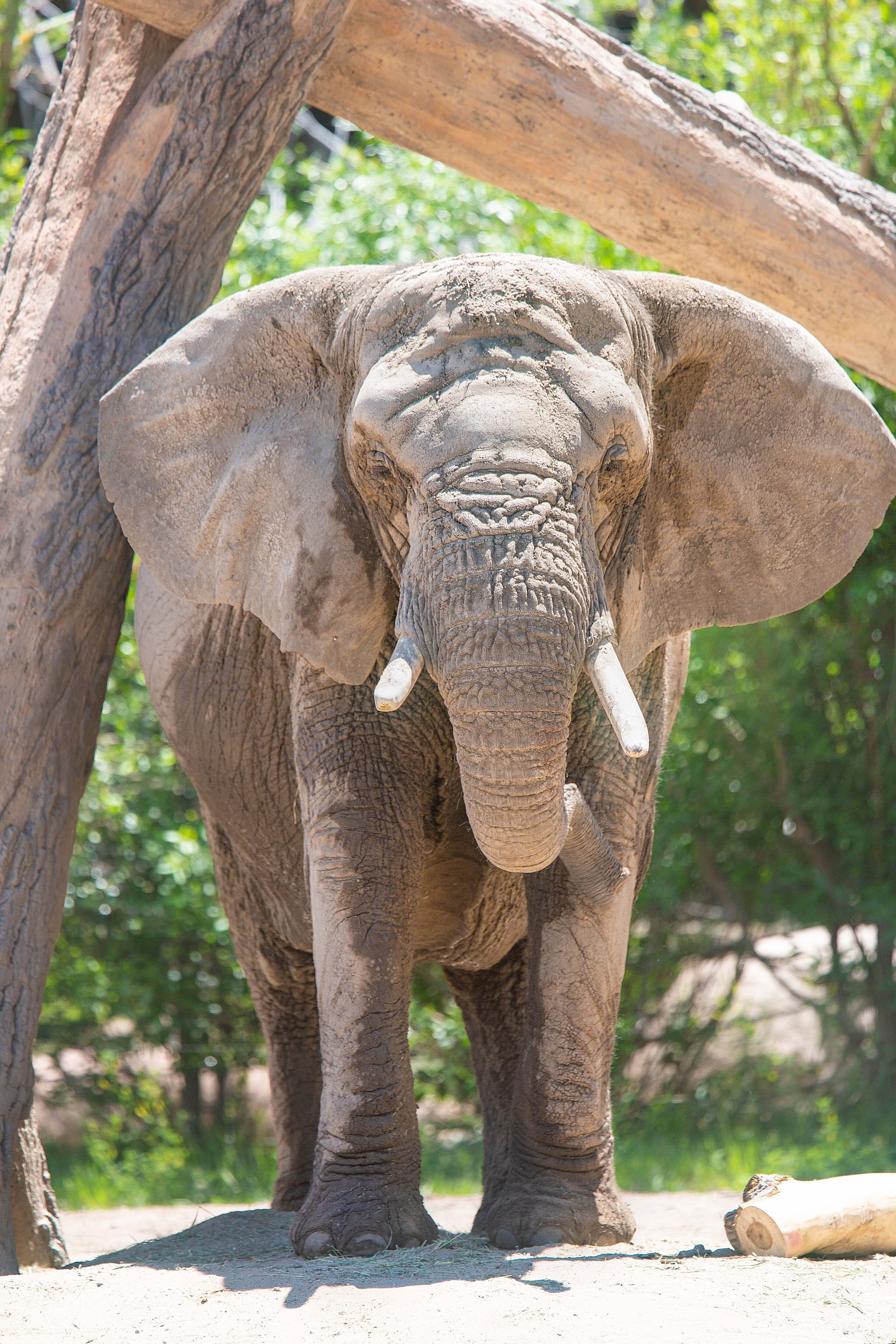In a legal first, Colorado’s highest court is hearing arguments Thursday on whether five African elephants at the Cheyenne Mountain Zoo should be able to challenge their captivity.
The NonHuman Rights Project, an animal rights group, has alleged that five female elephants who have lived at the Colorado Springs facility for decades are being unlawfully confined “in violation of their common law right to bodily liberty” as protected by habeas corpus. Habeaus corpus is a law that protects against unlawful and indefinite imprisonment.
The group claims the animals are “suffering” at the zoo, because of its size, and exhibiting behavior like rocking and swaying that experts have confirmed is “troubling” and caused by “chronic stress and trauma.”
But the zoo says it takes excellent care of its elephants and the lawsuit is misguided, noting that moving the animals from the facility to a sanctuary would be stressful and “cruel.”
Furthermore, it said that legal protections for habeas corpus allow a court-recognized “next friend” to file a written request on behalf of humans who aren’t capable of asserting their own. Now, it's the animal rights group making the argument on behalf of the elephants demanding rights similar to those humans see.
It had been previously made clear the group was not a “next friend” of the zoo’s elephants when the case was first dismissed in El Paso County, Colorado, District Court last year.
“Issues of the sort raised by this case, involving mankind’s stewardship of the planet and its living creatures, grow more pressing each year in light of the rapid advance of climate change, habitat loss, and the mass extinction of numerous species,” El Paso County District Court Judge Eric Bentley said in a December ruling. “On the other side of the equation, it is unfortunate that this case pits two organizations against each other that perhaps ought to be on the same side.”
The NonHuman Rights project has alleged that statements from the zoo were “full of misrepresentations, micharacterizations and basically just lies.”
Jake Davis, the staff attorney for the NonHuman Rights Project, told The Independent on Thursday that other elephants in worse health had been transferred to sanctuaries with successful outcomes.
“Council for the respondents tried to paint a picture of their lives that is contrary to the record in the case, contrary to the science that’s been submitted on our behalf in the case,” Davis said. “And so, we’re hopeful that, because of them, we’ll have a hearing when this is all said and done in the district court.”
In 2022, the NonHuman Rights Project filed a lawsuit that challenged the confinement of an elephant named Happy at New York City’s Bronx Zoo. New York’s Court of Appeals later ruled that Happy, while intelligent and deserving of compassion, could not be considered a person being illegally confined to the zoo. Giving those rights to an elephant, the court said, would have “an enormous destabilizing impact on modern society,” and change how humans interact with animals.
This case marks the first time the Colorado court will consider whether a nonhuman animal has these rights, the rights group said. Activists say elephants Missy, Kimba, Lucky, LouLou and Jambo, are autonomous beings.
Conversely, the Cheyenne Mountain Zoo has claimed that its challenger is just trying to create a court precedent granting habeas corpus to any animal. “Our elephants are just the next target on their list of failed attempts at setting this precedent,” it said.

The rights group admits the case is more than just about freeing the five elephants: “It’s about recognizing the rights of nonhuman animals under the law and deepening our compassion and respect for the freedom of other beings.”
The zoo counters that popular opinions about what’s considered best for elephants in general or in the wild are not the best for these elephants, and that the requirement of habeas corpus that the benefitting party “will go free” cannot apply to these animals, as they will not survive without human care and medical attention. They said the elephants are not unlawfully detained under state law, citing a previous decision by Colorado legislature that banned elephants in traveling circuses.
“We hope Colorado isn’t the place that sets the slippery slope in motion of whether your beloved and well-cared-for dog or cat should have habeas corpus and would be required to ‘go free,’ at the whim of someone else’s opinion of them,” the zoo said.
The lawsuit was filed last summer, and the case will likely not be decided for weeks or months.





